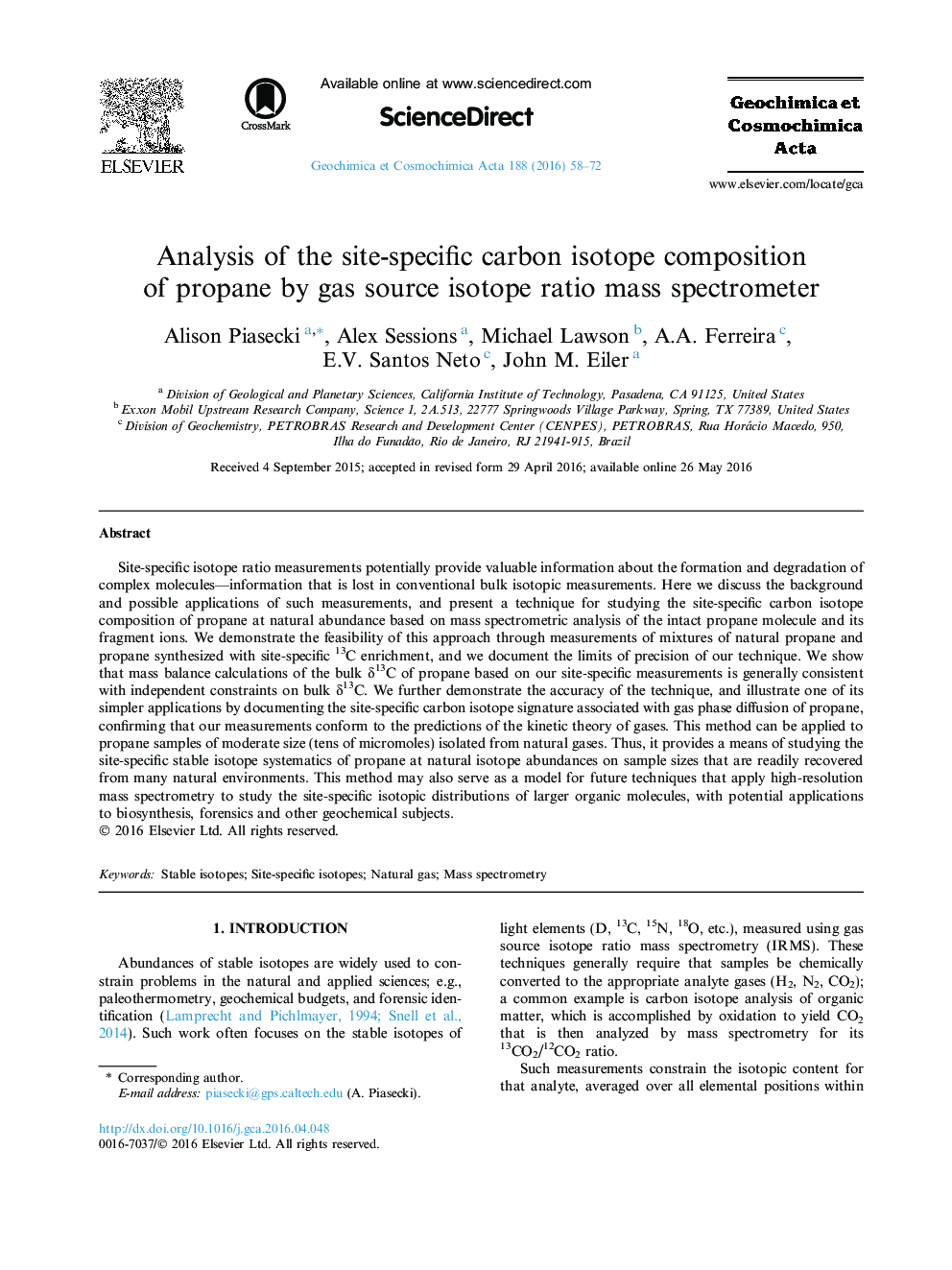| Article ID | Journal | Published Year | Pages | File Type |
|---|---|---|---|---|
| 4701761 | Geochimica et Cosmochimica Acta | 2016 | 15 Pages |
Site-specific isotope ratio measurements potentially provide valuable information about the formation and degradation of complex molecules—information that is lost in conventional bulk isotopic measurements. Here we discuss the background and possible applications of such measurements, and present a technique for studying the site-specific carbon isotope composition of propane at natural abundance based on mass spectrometric analysis of the intact propane molecule and its fragment ions. We demonstrate the feasibility of this approach through measurements of mixtures of natural propane and propane synthesized with site-specific 13C enrichment, and we document the limits of precision of our technique. We show that mass balance calculations of the bulk δ13C of propane based on our site-specific measurements is generally consistent with independent constraints on bulk δ13C. We further demonstrate the accuracy of the technique, and illustrate one of its simpler applications by documenting the site-specific carbon isotope signature associated with gas phase diffusion of propane, confirming that our measurements conform to the predictions of the kinetic theory of gases. This method can be applied to propane samples of moderate size (tens of micromoles) isolated from natural gases. Thus, it provides a means of studying the site-specific stable isotope systematics of propane at natural isotope abundances on sample sizes that are readily recovered from many natural environments. This method may also serve as a model for future techniques that apply high-resolution mass spectrometry to study the site-specific isotopic distributions of larger organic molecules, with potential applications to biosynthesis, forensics and other geochemical subjects.
